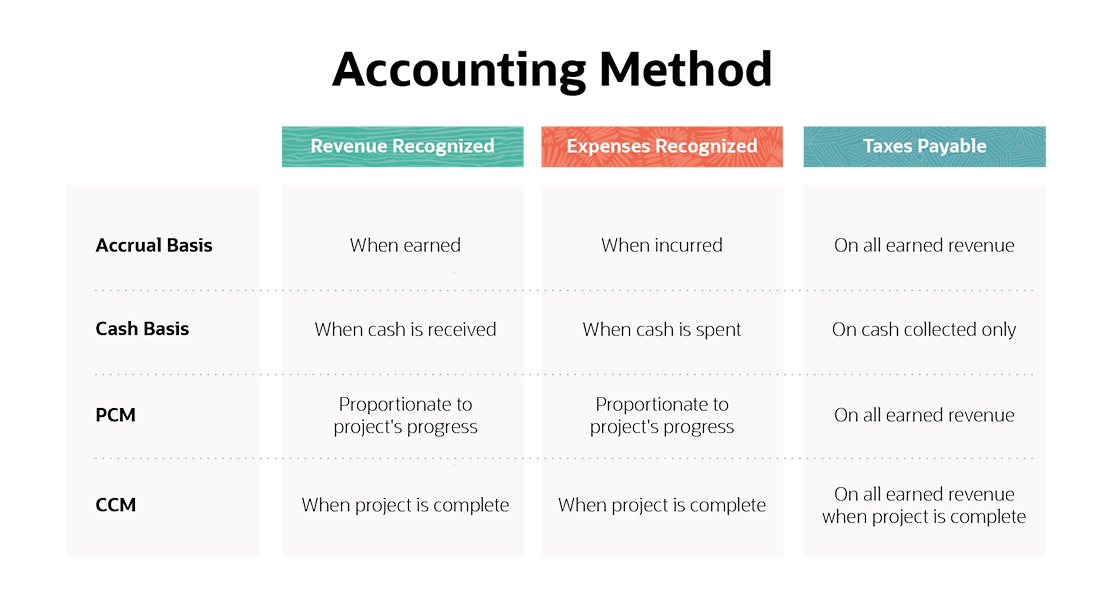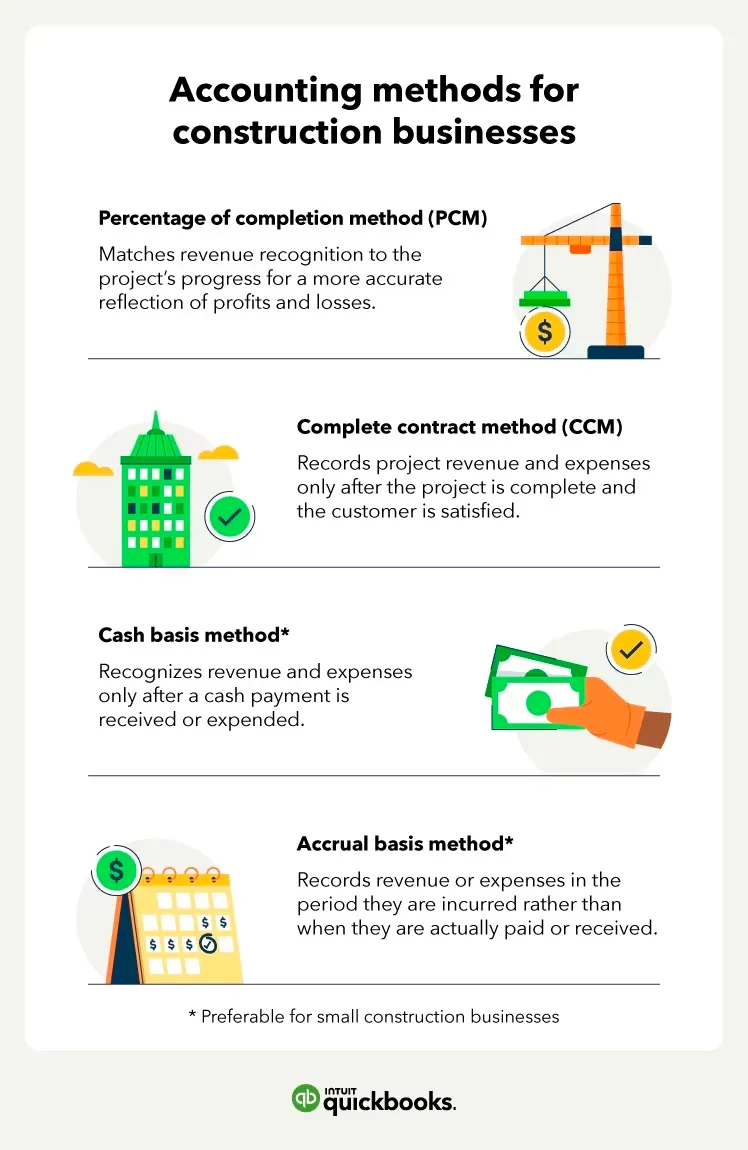Construction Accounting: Navigating Taxes and Expenses in the Construction Sector
Construction Accounting: Navigating Taxes and Expenses in the Construction Sector
Blog Article
Secret Services Offered in Construction Accountancy to Improve Financial Oversight
In the realm of building bookkeeping, crucial services such as project cost evaluation, budget management, and cash flow evaluation play an essential role in enhancing monetary oversight. These solutions not only improve the budgeting procedure yet also offer essential understandings right into expenditure patterns and job profitability. By carefully monitoring monetary metrics, stakeholders can make educated decisions that line up with project goals. The complexity of these solutions typically increases inquiries regarding their application and effect on total job success. Comprehending these subtleties can substantially affect the efficiency of financial oversight in building projects.
Task Price Evaluation
Effective task expense evaluation is a vital component of successful building audit solutions, as it directly affects budgeting and monetary planning (construction accounting). Accurate expense estimates provide a thorough review of the monetary demands for a construction task, enabling stakeholders to make educated choices relating to source appropriation and job usefulness
A thorough cost estimation procedure incorporates various elements, including labor, materials, tools, expenses, and backups. By assessing historical information and current market patterns, building accountants can establish sensible price quotes that reflect real job expenses. This logical strategy not only aids in securing financing yet additionally enhances openness and responsibility amongst all parties involved.
Furthermore, exact expense evaluation acts as a structure for surveillance and controlling expenditures throughout the task's lifecycle. By establishing a clear standard, building accountants can determine discrepancies in between estimated and actual expenses, permitting timely changes and treatments.
Inevitably, efficient task expense estimate not only assists in smoother project implementation yet also enhances the general financial health of building and construction organizations, guaranteeing they stay affordable in an increasingly dynamic sector. This tactical approach highlights the importance of skilled specialists in delivering exact and reliable cost price quotes.
Budget Monitoring
In the realm of construction audit services, budget management plays a critical duty in making sure that jobs remain monetarily practical and on the right track. Efficient budget plan monitoring entails the systematic preparation, surveillance, and controlling of task expenses to line up with monetary goals. It begins with the creation of a detailed spending plan that properly shows the anticipated prices of labor, materials, tools, and expenses based upon thorough task expense evaluation.
Once the spending plan is developed, ongoing tracking is crucial. This includes normal analyses of real expenses versus the budgeted numbers, permitting for timely identification of discrepancies. By implementing tools and software customized for construction accountancy, job managers can create real-time records that assist in educated decision-making.
Furthermore, proactive budget plan administration enables stakeholders to adjust financial allowances and resources as required, promoting versatility in feedback to unanticipated challenges. This flexibility is important in the building sector, where project extents can often change. Eventually, robust budget plan administration not just bolsters monetary responsibility but additionally improves general job performance, making sure successful conclusion within the allocated financial specifications.
Money Flow Analysis
Cash money circulation analysis offers as a critical element of building and construction accounting, enabling task supervisors to keep a clear understanding of the inflow and discharge of funds throughout the job lifecycle. This analytical process permits the identification of possible cash scarcities or surpluses, equipping supervisors to make enlightened choices pertaining to budgeting and news resource allotment.
By carefully tracking money inflows from client payments, fundings, and various other income sources, alongside keeping track of discharges such as labor, products, and overhead expenses, project managers can create an extensive cash money flow estimate - construction accounting. This estimate not just help in forecasting future monetary settings but likewise helps in determining patterns that might influence project feasibility
Normal capital evaluation promotes timely interventions, allowing project managers to address economic difficulties before they escalate. This aggressive strategy can reduce risks related to postponed payments or unexpected expenses, eventually leading to even more successful task completions. Furthermore, efficient cash money circulation monitoring adds to keeping strong relationships with subcontractors and distributors by making sure timely settlements.
Basically, money flow analysis is an important tool in construction bookkeeping, driving financial security and functional efficiency throughout the duration of building and construction projects.
Regulatory Compliance Assistance
Regulatory compliance support is necessary for building and construction companies navigating the complicated landscape of market policies and requirements. The building and construction market undergoes a myriad of regional, state, and government regulations, including safety criteria, labor laws, and environmental guidelines. Non-compliance can cause substantial charges, delays, and reputational damage.
A durable conformity support group assists firms stay notified regarding pertinent policies and ensures that they apply essential plans and treatments. This consists of monitoring modifications in regulations, offering training for workers, and conducting routine audits to assess conformity levels. Construction accounting professionals play an essential role in this process, using knowledge to translate policies and straighten financial practices accordingly.
Moreover, governing conformity support incorporates the preparation and entry of required paperwork, such as tax filings and reporting for labor criteria. By developing a proactive compliance strategy, construction firms can minimize dangers connected with non-compliance, enhance operational efficiency, and cultivate a culture of liability.
Inevitably, effective regulative conformity support not just safeguards a building firm's financial health but additionally reinforces its track record in the sector, placing it for sustainable growth and success.

Financial Reporting and Insights
While browsing the intricacies of the construction market, precise monetary coverage and informative analysis are crucial for notified decision-making. Building jobs usually involve substantial resources financial investment and rising and fall costs, making explanation it vital for stakeholders to have accessibility to clear and prompt economic data. Comprehensive economic reports, consisting of profit and loss declarations, capital forecasts, and annual report, supply a picture of a firm's economic health and efficiency.
Furthermore, customized insights originated from these records help supervisors identify trends, examine job productivity, and make critical changes to enhance operational effectiveness. Key performance indications (KPIs) certain to building-- such as task margins, labor expenses, and above proportions-- use important standards for examining success and forecasting future performance.
In addition, regular economic coverage allows compliance with contractual obligations and promotes openness with stakeholders and investors. By leveraging sophisticated audit software program and data analytics, construction firms can enhance their monetary oversight, allowing them to navigate uncertainties better. Inevitably, durable economic coverage and workable understandings encourage building and construction firms to make enlightened choices that advertise growth and sustainability in an extremely open market.
Conclusion

In the world of building and construction accountancy, vital solutions such as task price estimate, spending plan administration, and cash money circulation analysis play a critical duty in enhancing economic oversight. Eventually, robust budget management not only reinforces economic liability however additionally enhances general task performance, ensuring effective completion within the allocated financial parameters.

Report this page